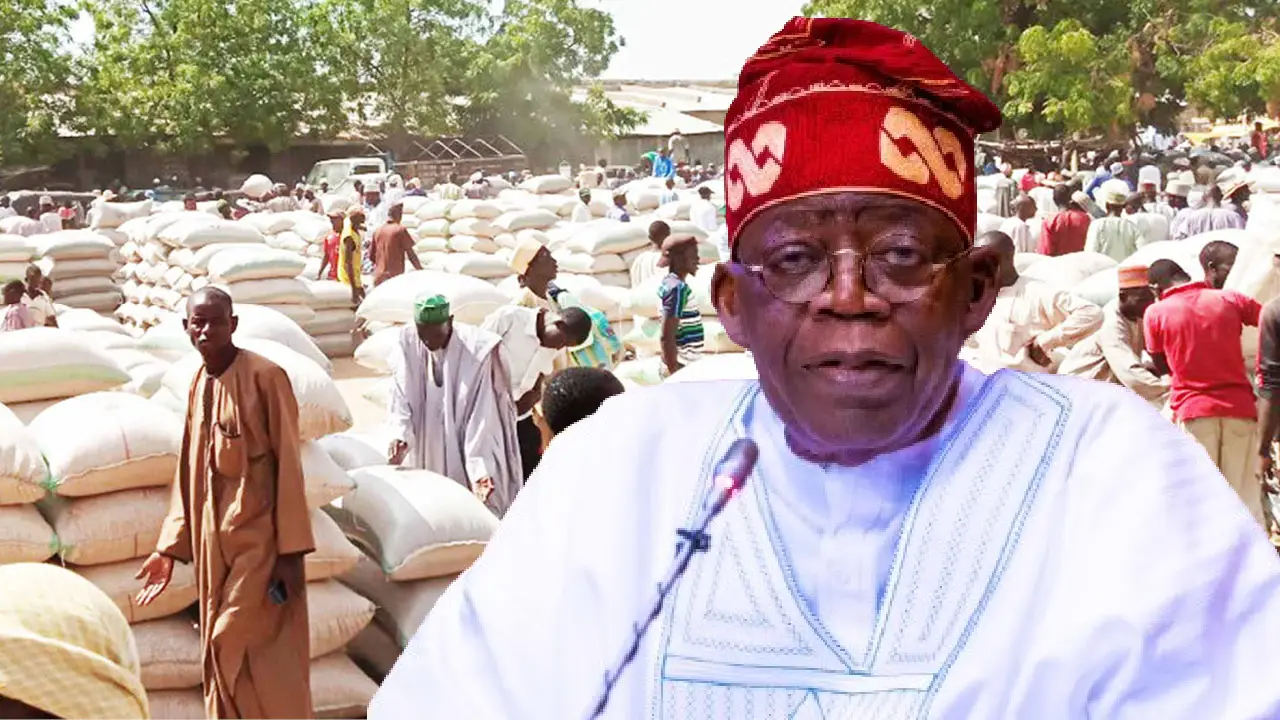
Nigerians Demand Sustainable Solutions from Tinubu Amid Food Shortage
Nigerians have voiced their concerns, stating that the Federal Government’s distribution of palliatives is not an adequate solution to the country’s food shortage crisis. They have called on President Bola Tinubu to declare an emergency in food security, introduce a comprehensive national food policy, and address the insecurity caused by herders, which has forced farmers, especially in southern Nigeria, to abandon their farms.
Misplaced Priority – Adima, Political Activist
Political activist Mr. Blessing Adima, speaking to Saturday Vanguard in Delta State, criticized the government’s approach: “Buying grains and rice for distribution is a misplaced priority. It shows that the federal government does not care about food production or understand how to tackle the problems we are facing in Nigeria today. Herders have chased farmers from their farmlands, leading to reliance on imported rice that could be produced locally.”
Adima emphasized that the money spent on importing rice could instead be used to combat insecurity, banditry, terrorism, and the herdsmen menace, thereby solving the root problem.
Encourage Farmers to Return to the Farm – Akene, Development Consultant
Development consultant Furoebi Akene stressed the importance of getting farmers back to their lands: “Efforts should be made for farmers to return to their farms. Additionally, ensuring the honest and efficient distribution of aid is crucial. Dubious and fraudulent practices in distribution must be addressed.”
Palliatives Offer Temporary Relief – Idi, Ndokwa Youth Leader
Comrade Presley Idi, Secretary of the Ndokwa National Youth Movement (NNYM), highlighted that palliatives are only temporary solutions: “The key to solving Nigeria’s food crisis is ensuring a secure environment for farmers. Without proper security, farmers cannot return to their fields, and food shortages will persist.”
Government Not Addressing the Problem – Wills, Legal Practitioner
Bayelsa State legal practitioner Iniruo Wills criticized the government’s approach: “Extravaganza is not governance, and public spectacle is no strategy. Real governance is needed to address food insecurity effectively.”
Palliatives Not Sustainable – Ekerefe, Ex-IYC Spokesperson
Ebilade Ekerefe, former spokesman of the Ijaw Youth Council (IYC), argued that palliatives are not a sustainable solution: “Sharing billions of trailer loads of rice and distributing money as palliatives does not address the core issues. Corrupt officials often divert these resources. The government should declare an emergency in food security and introduce a holistic national policy.”
No Clear Policy Direction – Rukevwe, Educationist
Delta State educationist Mrs. Edna Rukevwe noted the lack of preparation and clear policy direction: “President Tinubu did not anticipate the economic reactions to the removal of the petroleum subsidy. The government should focus on addressing insecurity, providing fertilizers, and allowing tax-free importation of farm tools.”
Address Insecurity for Sustainable Farming – AFAN
Chief Israel Amanze of the All Farmers Association of Nigeria (AFAN) argued that the government needs to address the root causes of food insecurity: “Distribution of palliatives is only a temporary measure. The government should subsidize fertilizers and farm inputs to encourage farmers to return to their farms.”
Support Self-Reliance and Sustainable Agriculture
Saviour Akpan, Executive Director of COMPPART Foundation for Justice and Peacebuilding, suggested subsidizing organic seedlings and fertilizers: “This will encourage self-reliance. The Land Use Act of 1978 should also be amended to make land readily available for agricultural purposes.”
Prioritize Food Security – Ogunbiyi Olajunwo, Rights Lawyer
Uyo-based rights lawyer Ogunbiyi Olajunwo criticized the government’s priorities: “The administration should have opened the borders immediately to allow food imports. A clear plan to tackle insecurity and invest in mechanized farming is necessary for long-term food security.”
Empower Small-Scale Farmers – SWOFON
Mrs. Mary Afan of the Small-Scale Women Farmers Organization in Nigeria (SWOFON) emphasized the importance of supporting smallholder farmers: “Smallholder farmers produce the majority of food found in markets. Government support should target these farmers to address food insecurity effectively.”
Encourage Modern Farming – Benzies-Buyengum and Musa
Residents Jamila Benzies-Buyengum and Adamu Musa suggested modern farming techniques and training for youth: “Government should subsidize farming implements and provide training to promote food production and availability.”
Engage Grassroots Dwellers – Dazang
Daniel Dazang highlighted the role of grassroots farmers: “Involving and supporting grassroots farmers can boost food production. Providing farm inputs and curbing insecurity are essential steps.”
The overarching message from Nigerians is clear: temporary measures like palliatives are not enough. The government must implement sustainable, long-term solutions to address food insecurity and ensure a stable food supply for the country.
